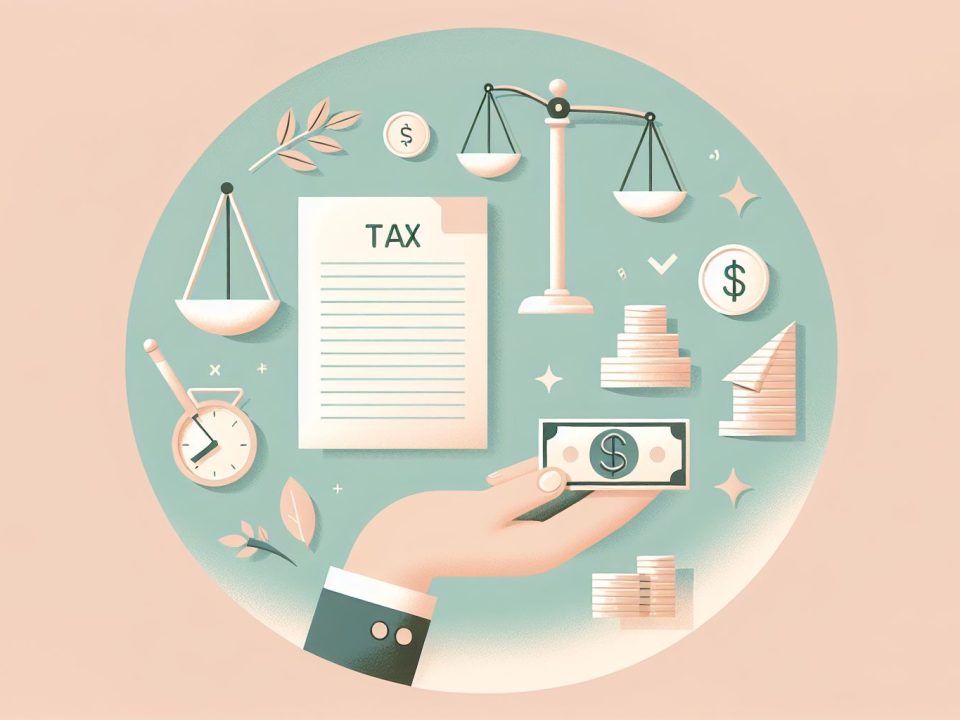
Transform Your Business Data into Insights with Xero Analytics powered by Syft
October 30, 2025NZ Property Investment: Residential vs Commercial Property Explained
For generations, New Zealanders have enjoyed a passionate relationship with residential property investment. It’s been the cornerstone of wealth creation for countless Kiwi families, offering accessible entry points, steady rental demand, and the potential for capital gains. However, the investment landscape has shifted dramatically in recent years, prompting savvy investors to reconsider their strategies and explore alternative options.
Commercial property investment, once viewed as the domain of institutional investors and wealthy individuals, is now emerging as an increasingly attractive alternative for everyday New Zealand property investors. Understanding the key differences between these two investment types has never been more critical for making informed decisions about your financial future.
The Traditional Appeal of Residential Property Investment
Residential property has long been New Zealand’s investment darling, and for good reason. The advantages that made it so popular include:
Lower Entry Barriers: Residential properties typically require less capital to purchase compared to commercial properties, making them accessible to first-time investors and those with modest savings.
Easier Financing: Banks have traditionally offered more favourable lending terms for residential properties, with lower interest rates and longer loan periods, making serviceability more manageable.
Strong Tenant Demand: With New Zealand’s ongoing housing shortage, finding tenants has historically been relatively straightforward, ensuring consistent rental income.
Personal Enhancement Opportunities: DIY-savvy investors could add value through renovations and improvements, potentially increasing both rental returns and property value.
Market Liquidity: The residential property market has always offered good liquidity, with a large pool of potential buyers when it comes time to sell.
These factors created a compelling investment case that resonated with New Zealanders across all income brackets and investment experience levels.
How Government Policy Has Reshaped Residential Investment
Over the past decade, residential property investment has become increasingly politicised. What was once a relatively straightforward investment strategy has been complicated by successive waves of legislative changes designed to cool the residential property market and improve housing affordability.
The Brightline Test: This capital gains-style tax initially applied to properties sold within two years of purchase, but was extended to five years in 2018, then dramatically increased to ten years in 2021. While the current Coalition Government has reduced it back to two years, the uncertainty around future changes remains a concern for many investors.
Learn more: Will You Pay Bright-Line Tax on Your NZ Property Sale? Essential Rules Explained
Interest Deductibility Restrictions: Perhaps the most significant blow to residential investors came with the removal of interest deductibility on residential investment properties. While this has been phased back in, investors worry about potential reversals following the 2026 election.
Loss Ring-Fencing Rules: These rules prevent residential property investors from offsetting rental losses against other income, limiting tax planning opportunities and affecting cash flow for properties that aren’t immediately profitable.
Depreciation Removal: The removal of depreciation deductions for residential buildings eliminated an important tax advantage that residential properties once enjoyed.
Learn more: Understanding Depreciation: A Key to Maximizing Your Tax Benefits
These changes have fundamentally altered the economics of residential property investment, squeezing margins and creating uncertainty about future returns.
The Growing Case for Commercial Property Investment
As residential property investment has become more complex and politically vulnerable, commercial property has emerged as an increasingly attractive alternative. From a taxation and regulatory perspective, commercial property now offers several compelling advantages:
Tax Stability and Certainty
Commercial property has largely been spared from the political interference that has plagued residential investment. The Brightline Test, interest deductibility limitations, and loss ring-fencing rules have never applied to commercial properties, providing investors with much-needed certainty when planning their investment strategies.
This stability allows investors to make long-term decisions with confidence, knowing that the fundamental tax treatment of their investment won’t change overnight due to political whims.
Superior Depreciation Opportunities
Commercial property offers significantly better depreciation benefits compared to residential property. Commercial fitout, fixtures, and a wider range of chattels can be depreciated, providing valuable tax deductions that improve after-tax returns. While the building structure was previously depreciable, National has removed this from the start of the 2025 tax year onward.
Higher Rental Yields
Commercial properties generally offer higher rental yields compared to residential properties. While residential properties in major cities might yield 3-5% annually, commercial properties often deliver yields of 6-8% or higher, depending on the property type and location.
These higher yields provide better cash flow, making it easier to service debt and generate positive returns from day one.
Net Lease Structures
One of the most significant advantages of commercial property is the lease structure. Commercial leases are typically “net” arrangements, where tenants are responsible for outgoings such as insurance, rates, maintenance, and building expenses.
In contrast, residential investors bear the full burden of all property expenses, which can significantly erode returns, particularly when properties are between tenants or when unexpected maintenance issues arise.
Longer Lease Terms
Commercial tenants typically sign leases for three, six, or even nine years, with options to renew. This provides investors with:
- Income stability: Predictable cash flow over extended periods
- Reduced vacancy costs: Less frequent tenant turnover means lower costs associated with finding new tenants
- Less management intensity: Fewer lease negotiations and tenant transitions
- Protection from market fluctuations: Locked-in rental rates provide certainty even during economic downturns
Quality Tenant Covenants
Commercial properties are often leased to established businesses with proven track records. This provides greater security compared to residential tenancies, where individual circumstances can change rapidly.
Additionally, commercial leases include more robust protections for landlords, and businesses have reputational incentives to maintain their lease obligations.
Understanding the Risks: Commercial Property Considerations
While commercial property offers numerous advantages, it’s important to understand the challenges and risks involved:
Higher Entry Costs: Commercial properties typically require more capital to purchase, though the higher yields often justify the increased investment.
More Complex Financing: Commercial lending comes with stricter requirements, including higher deposit requirements (typically 30-40%), shorter loan terms, and higher interest rates compared to residential mortgages.
Vacancy Risk: When a commercial tenant leaves, the property may remain vacant for longer periods compared to residential properties. However, this risk is mitigated by longer initial lease terms.
Economic Sensitivity: Commercial property values and rental rates are more closely tied to economic conditions. During recessions, businesses may struggle or downsize, potentially affecting your investment.
Specialized Knowledge Required: Commercial property investment requires understanding of commercial leases, zoning regulations, building compliance, and business operations—all of which are more complex than residential tenancy agreements.
Making the Right Choice for Your Portfolio
Both residential and commercial property investment have their place in a well-diversified portfolio. The right choice depends on your:
- Available capital: How much can you invest upfront?
- Risk tolerance: Are you comfortable with potentially longer vacancy periods in exchange for higher yields and longer lease terms?
- Investment timeline: Are you looking for short-term gains or long-term wealth accumulation?
- Management preference: Do you want to be hands-on or prefer a more passive investment?
- Tax situation: How will the different tax treatments affect your overall financial position?
- Market knowledge: Do you understand the local commercial market dynamics?
For many investors, a balanced approach that includes both residential and commercial properties may provide the optimal combination of diversification, risk management, and return potential.
The Importance of Professional Guidance
Whether you’re considering your first property investment or looking to diversify an existing portfolio, professional advice is essential. The tax implications, financing structures, and legal considerations involved in property investment—particularly commercial property—require specialized expertise.
Working with experienced advisors ensures that your investment is:
- Commercially sound: Based on realistic assessments of yields, vacancy rates, and market conditions
- Structurally appropriate: Set up in the most tax-efficient ownership structure for your circumstances
- Properly financed: With lending arrangements that support your long-term strategy
- Compliant: Meeting all regulatory and tax obligations from day one
Professional guidance can help you avoid costly mistakes and position your investment for maximum long-term returns.
Frequently Asked Questions
Q: Is commercial property investment only for wealthy investors?
A: While commercial properties typically require more capital than residential properties, they’re increasingly accessible to everyday investors. Options include smaller commercial units, shared ownership structures through companies like Silverfin Capital, Oyster or Centuria (for example), or starting with a residential portfolio and transitioning to commercial over time.
Q: What happens if my commercial tenant goes out of business?
A: This is a genuine risk, which is why tenant selection and due diligence are crucial. However, commercial leases often include personal guarantees and other protections. Additionally, longer lease terms mean you’re dealing with tenant turnover less frequently than with residential properties.
Q: Can I still invest in residential property, or has it become too difficult?
A: Residential property remains a viable investment option, particularly with recent improvements to the tax treatment. However, it’s important to understand the current rules and be prepared for potential future changes. Many investors are now diversifying across both residential and commercial to spread their risk.
Q: How do I determine the right commercial property to invest in?
A: This requires careful analysis of location, tenant quality, lease terms, building condition, and market dynamics. Professional advice is essential to ensure you’re making an informed decision based on comprehensive due diligence.
Q: What are the typical costs involved in commercial property investment beyond the purchase price?
A: Costs include legal fees, building reports, due diligence costs, loan establishment fees, and ongoing management expenses. However, remember that in net lease structures, many operating costs are passed through to tenants.
Q: Could the government introduce similar restrictions on commercial property in the future?
A: While anything is possible, commercial property has historically been treated differently from residential property in tax policy as it is seen as ‘more productive’. The focus of political intervention has been on residential property due to housing affordability concerns, which don’t apply to commercial property in the same way.
Q: How long should I plan to hold a commercial property investment?
A: Commercial property is typically a long-term investment, with holding periods of 10 years or more being common. This allows you to ride out economic cycles and benefit from both rental income and capital appreciation over time.
The Bottom Line: Property Investment Remains a Path to Wealth
Despite the changes and challenges in the property investment landscape, real estate remains one of the most reliable paths to building long-term wealth in New Zealand. The key is adapting your strategy to the current environment and making informed decisions based on professional advice.
Commercial property, once overlooked by everyday investors, now offers compelling advantages in terms of tax certainty, higher yields, and more favourable lease structures. At the same time, residential property continues to play an important role, particularly for those just starting their investment journey.
The most successful property investors are those who understand the nuances of different investment types, stay informed about regulatory changes, and work with experienced advisors to structure their investments for optimal returns.
Ready to Explore Your Property Investment Options?
At Business Like NZ Ltd, we work alongside property investors to navigate the tax and accounting complexities of both residential and commercial property investment. Our team can help you:
- Evaluate whether commercial or residential property is right for your circumstances
- Structure your investment in the most tax-efficient way
- Understand the full implications of different investment decisions
- Plan for long-term wealth creation through property
Don’t make important investment decisions without expert guidance. The right advice today can make a significant difference to your returns for years to come.
Learn more about our rental accouting services:

Rental Property Accounting
Commercial Property Accountants Who Understand Your World
Contact Business Like NZ Ltd today to discuss your property investment strategy:
Phone: +64 9 262 0726
Email: info@blnz.co.nz
Let us help you make informed decisions that align with your financial goals and set you on the path to long-term investment success. Property remains a viable and attractive investment option—when approached with the right strategy and expert support.




